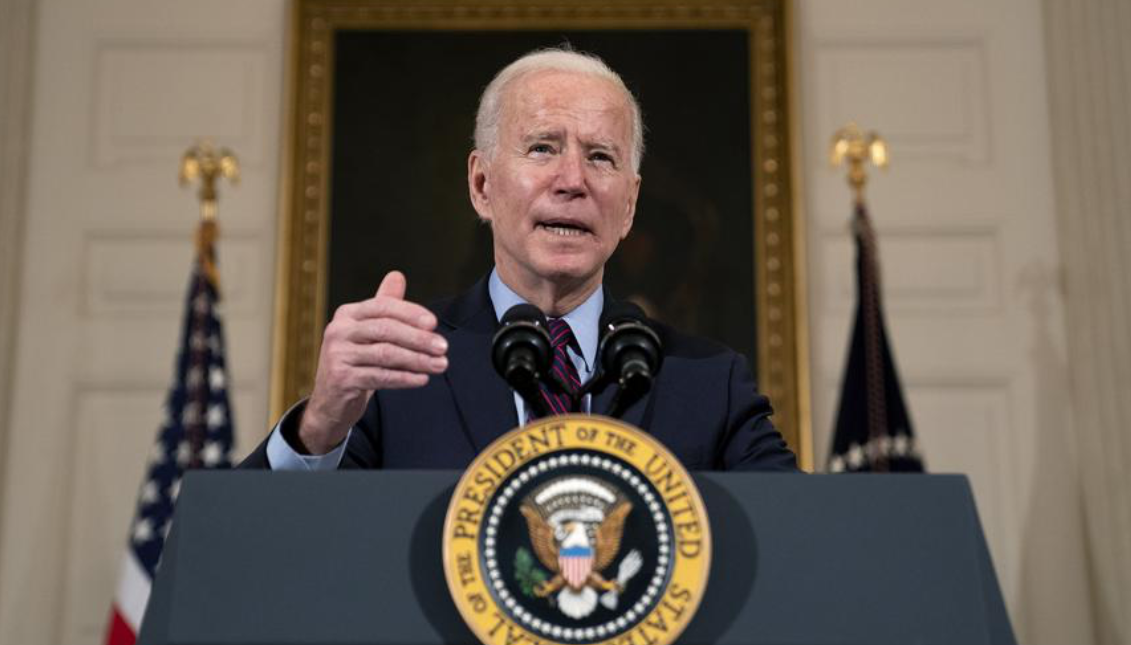
What is Biden’s Child Tax credit that could be included in his COVID-19 relief package?
Based on a taxpayer’s 2020 income, the credit would provide families with $3,000 per ages six to 17 and $3,600 per child under the age of six.
Between job losses, reduced income and conducting work and school from their homes, the COVID-19 pandemic has been financially difficult for most American families.
A 2021 National Endowment for Financial Education survey found that nearly seven out of 10 people suffered a financial setback in 2020.
From the very beginning, the Biden administration made it clear that it wants to address these issues through a stimulus bill. On Monday, Feb. 15, House Democrats are planning to unveil a new and improved child tax credit as part of the President’s $1.9 trillion dollar relief package.
The credit, which will be based on the taxpayer’s 2020 income, will provide $3,000 per child ages six to 17, and $3,600 to children under age six.
According to the nonpartisan Center on Budget and Policy Priorities, this updated child tax credit could help to lift nearly 10 million children above the poverty line or at least get them closer to it.
Chuck Marr, the center’s director of federal tax policy, explained in an interview with NPR’s Morning Edition, that the current child tax credit is very accessible for middle-class and higher-income families, but often excludes low-income families.
"You have 27 million children in our country who do not get the full maximum amount [of the tax credit] because their parents do not make enough money," Marr said.
In the past, similar credits have been taken on as a lump sum on an individual or family’s income tax return, but this new legislation will have taxpayers qualify to receive a monthly payment from the IRS for $250 or $300 depending on the child or children’s age.
I have been fighting to expand and improve the child tax credit for decades. The moment is finally here to pass the #AmericanFamilyAct and make dramatic cuts in child poverty that could improve the lives and futures of millions of children.
— Rosa DeLauro (@rosadelauro) February 7, 2021
This shift from a lump sum to monthly payments could easily be a game changer for many families. The Federal Reserve published a report in 2019 demonstrating that 40% of all Americans struggle to cover an unexpected $400 expense.
"The pandemic is driving families deeper and deeper into poverty, and it's devastating. We are making the Child Tax Credit more generous, more accessible, and by paying it out monthly, this money is going to be the difference in a roof over someone's head or food on their table," said Chairman of the Ways and Means Committee Richard Neal (D-MA) in a statement.
The new Child Tax Credit is targeting a small group of taxpayers: single filers who earn $75,000 or less and married filers with incomes of $150,000 or less.
The United States has received much criticism in recent years for spending less on its children than any other developed nation.
Although the current proposal is for credit to begin in July and last for 12 months, there is already talk that it may become permanent. If it does, it could have a long-term positive effect on the economy.
RELATED CONTENT
Further, it appears that Democrats are not the only ones focused on the Child Tax Credit.
Senator Mitt Romney (R-Utah) has revealed a version of an updated child tax credit of his own, titled The Family Security Act. His plan, however, is different than the one House Democrats have introduced.
Romney’s plan would repeat the current Child Tax Credit and replace it with one that would offer $3,000 for children ages 6 to 17 and $4,200 for each child under 6. Similar to the House proposal, Romney’s plan would provide monthly payments through the IRS.
But critics of his plan point out the fact that his plan was paid for by eliminating other federal programs, like the federal deduction for state and local taxes and Temporary Assistance for Needy Families, a welfare program.
The Romney proposal is a Trojan Horse that takes vital resources away from families who are hit the hardest during the pandemic, and offers that money to families that DON'T need help (the income cap is $400,000—wealthy by any standard.) It makes zero sense.
— Mary Emily O'Hara (@MaryEmilyOHara) February 4, 2021
Rep. Ritchie Torres, D-NY, feels that Biden’s Child Tax Credit could be “transformative” for districts like his, which experience high poverty.
“It’s hard to imagine a more powerful stimulus for our economy, a more powerful stabilizer for families than a permanently expanded child tax credit,” he said.
White House Press Secretary, Jen Psaki did not confirm whether the credit would be permanently extended. She simply noted that the current proposal will prive emergency funding to “help people get through this period of time.”

This article is part of Broke in Philly, a collaborative reporting project among more than 20 news organizations focused on economic mobility in Philadelphia. Read all of our reporting at brokeinphilly.org.











LEAVE A COMMENT: